One of the most asked and debated questions in the cinephile community is “What movies should I own in my DVD collection?” It’s a question I’ve asked myself, so I did as any writer does and decided to make my own list of essential movies one should have in their DVD collection. Notice the words ‘dvd collection’; I’m talking hard copies here. And it’s worth mentioning that these are not the only five movies one should have in your collection; nor is it in any way saying you have to own all five.
My aim with this series is to hopefully introduce you to some essential films you may never have heard of or, even better, cause you to reevaluate the ones you have seen. Lists are useful for helping broaden one’s base of knowledge, organizing one’s thoughts, and starting a discussion, after all.
Each entry in this article series will revolve around a specific genre or topic. Because (thankfully) movies are constantly being made, I had to set a cut-off date. What I consider The Essentials will be made up of films released before 2015.
These are the top five romantic comedies that I believe to be essential to your collection. Romantic comedies are tough to do. Because of their very nature, they often bring with them a large range of baggage in how they treat their characters. Still, there are many that walk that fine line between being both romantic and funny in a way that doesn’t make us cringe.
Again, these are not all the essential movies, just some of them.
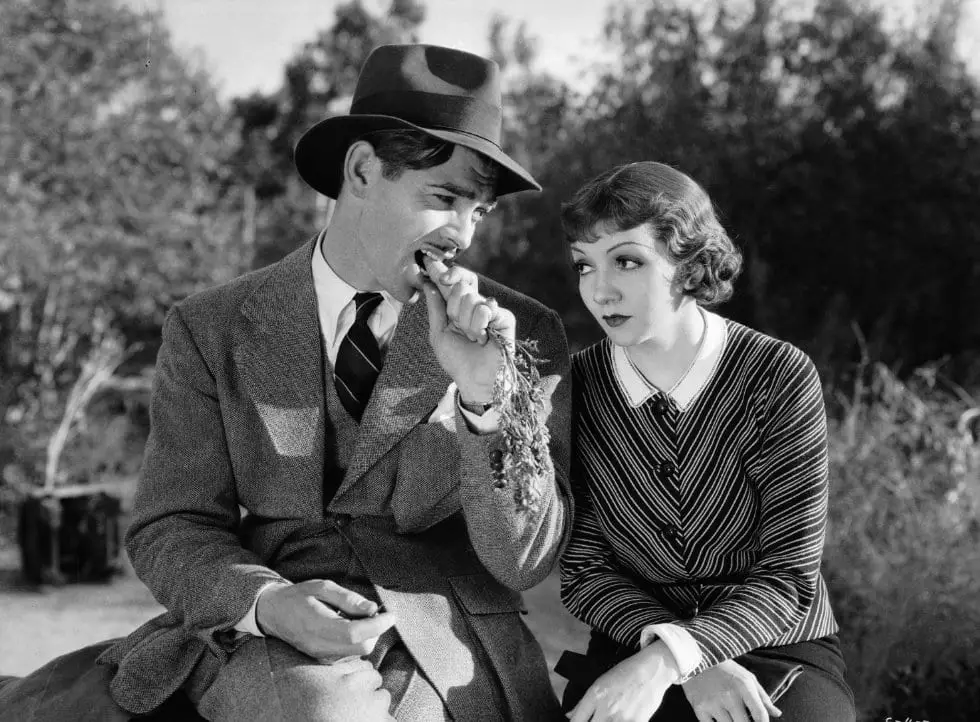
It Happened One Night (1934)- Frank Capra
The mother of romantic comedies is Frank Capra’s It Happened One Night. Arguably one of the most influential movies ever made. Influential if for nothing else the thirty or so seconds in which Clark Gable tips his hat to the side, eats a carrot and utters the immortal words, “What’s up doc?”
It Happened One Night is a perfect distillation of a romantic comedy dealing with class issues during the great depression. Gable’s Peter is a news reporter who stumbles upon a runaway heiress Ellie (Claudette Colbert). What follows is a delightful ride that sees a stuck up heiress realize the plight of the modern man and a selfish glory hungry news journalist who realizes that maybe he’s not as great as he thinks. Capra sneaks some wonderful sexual innuendo throughout as he dances around the infamous Hayes code; the ‘walls of Jericho’ gag, in particular, having a fantastic payoff at the end.
Capra was a complicated man who didn’t really know his own thoughts sometimes. As a result, his movies are deeply felt mercurial examples of the human condition. There’s a great ideological optimism within his work that’s tempered with a deep cynical suspicion of humanity. Capra’s work stands because he understands the confused honesty of our lives.
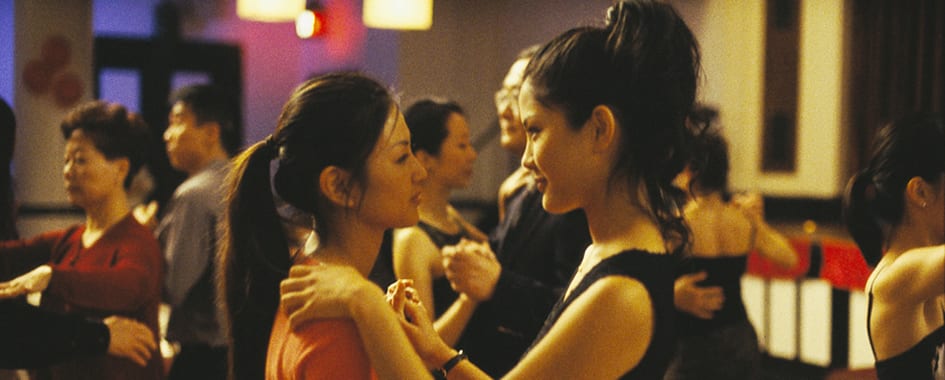
Saving Face (2004) – Alice Wu
Alice Wu’s Saving Face is one of the best romantic comedies because it’s not just a romantic comedy. It’s about relationships. Saving Face explores the many facets of Will (Michelle Krusiec) as she navigates her family, her newly pregnant single mother Hwei-lang (Joan Chen), and of course her burgeoning relationship with Vivian (Lynn Chen). Alice Wu does all of this effortlessly in an almost Robert Altman-esque manner.
Saving Face drifts from story to story but never aimlessly. There are purpose and confidence in Wu’s direction and writing. Wu allows moments to transform from comedy to slice of life drama. Her cinematographer Harlan Bosmajian lets his camera find wonderful places to observe its characters but never in a distracting manner. Vivian tells Will about how she’s known her forever and regales her of a childhood story where Will came to her rescue, Wu’s camera is behind a shelf and slowly comes around, so the two are in the center before insinuating itself between the two. This allows us the audience to start off like voyeurs only to end with us being as intimate with these characters as Krusiec and Chen are.
Stories about queer characters often end depressingly, violently, or both. The ending of Saving Face I am happy to report is actually quite happy and glorious. Is it tacked on? A little, but I would argue most big Hollywood movies have tacked on happy endings as well. It’s nice to see a lesbian love story, that’s also a story about a mother and daughter coming to terms with themselves and their culture, getting the same treatment as a big studio blockbuster.
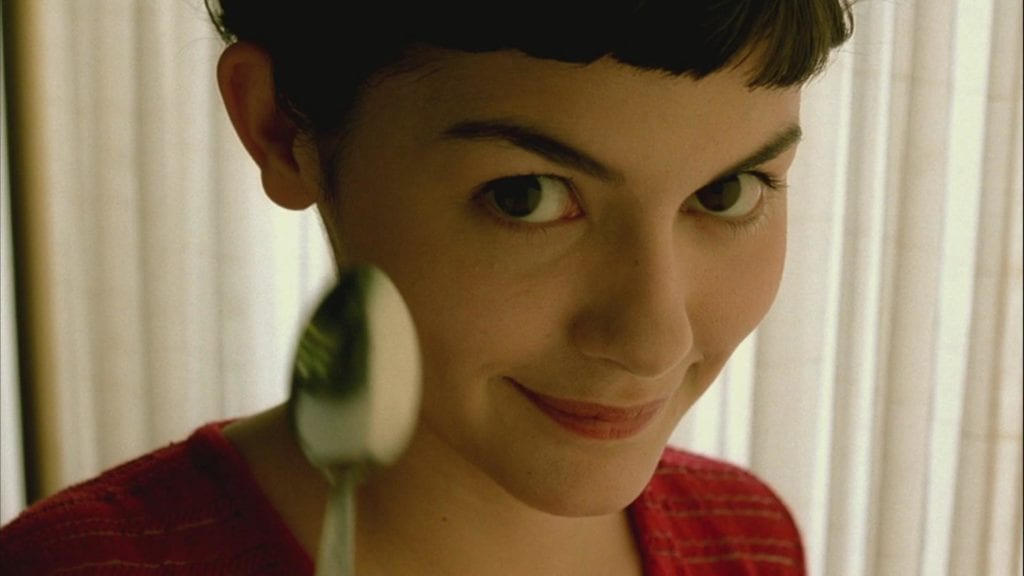
Amelie (2001) – Jean-Pierre Jeunet
Of all the movies on this Jean- Pierre Jeunet’s Amelie is the most visually and stylistically distinctive. A French romantic comedy that rushes headlong into a poetic love letter to life itself. A movie so alive and unpredictable it somehow managed to spawn an entire subgenre during the early 2000’s.
Amelie is fascinated by the inner lives of its characters. Whether it be Amelie (Audrey Tautou) herself, Georgette (Isabelle Nanty), Joseph (Dominique Pinon), or Amelie’s crush Nino (Mathieu Kassovitz), Jeunet is fascinated by them all. On the surface, Amelie is a multi-storied series of vignettes about everyday people and the strange facts and events that connect us all. But at its heart, it’s about a shy introverted waitress trying to work up the nerve to talk to a cute boy she knows. Jeaunet is never forceful with his whimsy. There are a gentleness and care to the whole affair.
Jeunet’s dazzling and sometimes dizzying frenetic style enhances the overall magical realism of Amelie. There’s such a delightful zeal and genuinely awe-inspiring color scheme that Amelie feels more like a fever dream than a romantic comedy. Jeunet never ceases to surprise us with his choice of visual flourish. Jeunet makes every frame of Amelie pulsate with a grandiose love for humanity and people.
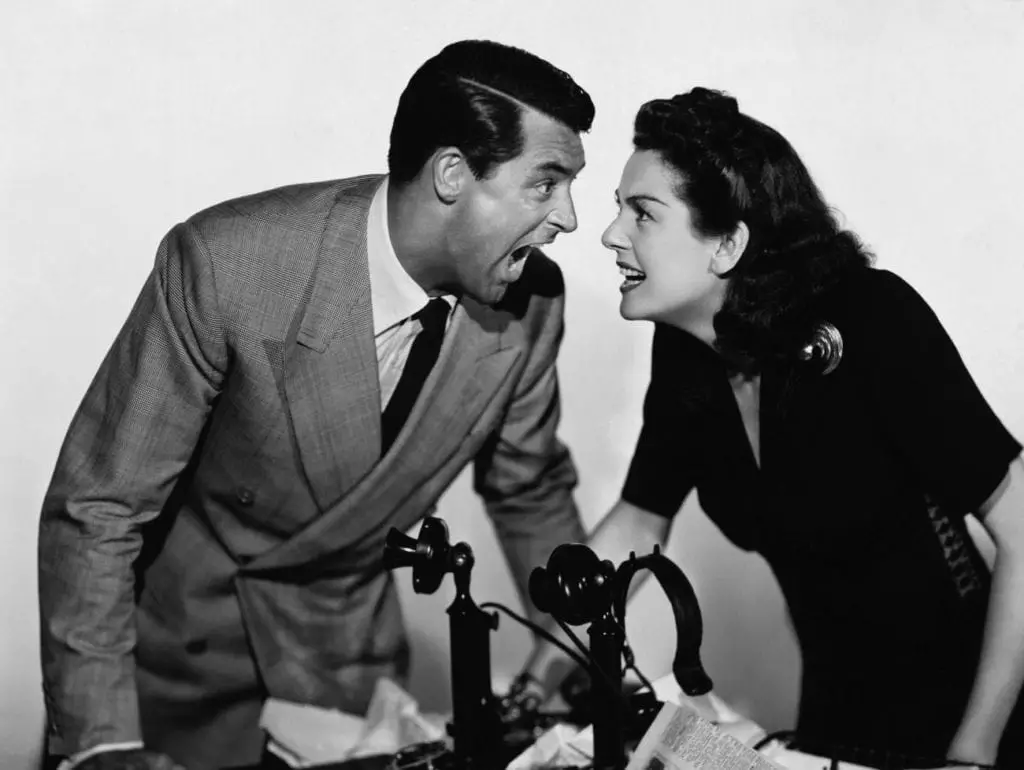
His Girl Friday (1940) – Howard Hawks
Of the screwball comedies His Girl Friday is partially to blame for most of the toxicity in the modern iteration of romcoms. Howard Hawks adaptation of the play is a witty, rapid-fire battle of the sexes is damn near pristine, but it sowed the seeds for the less nuanced future generations. Still, His Girl Friday stands tall above most romantic comedies and towers over almost all modern ones.
Cary Grant’s Walter is slightly underhanded but sincere. He schemes, plots, and manipulates Rosalind Russell’s Hildy into leaving her fiance Bruce (Ralph Bellamy). The reason His Girl Friday works is because Hildy side steps and maneuvers around almost every obstacle Walter throws up. Walter is both her former editor, her former boss, and former lover so Hildy knows his fingerprints well. Hildy is an ace reporter. But she inexplicably gives up her job for the life of a homemaker for a bland insurance salesman. On some level, Hildy is unsure of this decision, and on some level, Walter recognizes this. His Girl Friday deftly moves through social landmines as the two cannonball toward the finale.
Hawks and his writers Ben Hect, Charles Lederer, and Morrie Ryskind allow Russell and Grant some of the best dialogue of their careers. The writers cleverly show us Hildy’s reluctance and true nature not just through witty banter but by her actions. Hildy gets involved in a news story, and we see her natural abilities and instincts come out. As the story begins to snowball into something significant Hildy and Walter cease their verbal sparring and slip back into their respective roles as editor and reporter. She begins to realize maybe she doesn’t want to be a homemaker after all.
His Girl Friday is so perfect until it isn’t. The ending is one of the worst finishes of all time. Hildy does a one-eighty and becomes a whimpering sycophant to Walter that damn near destroys everything that came before. Still, before that atrocious ending, it’s easily one of the best written, engaging, hilarious screwball comedies ever written.
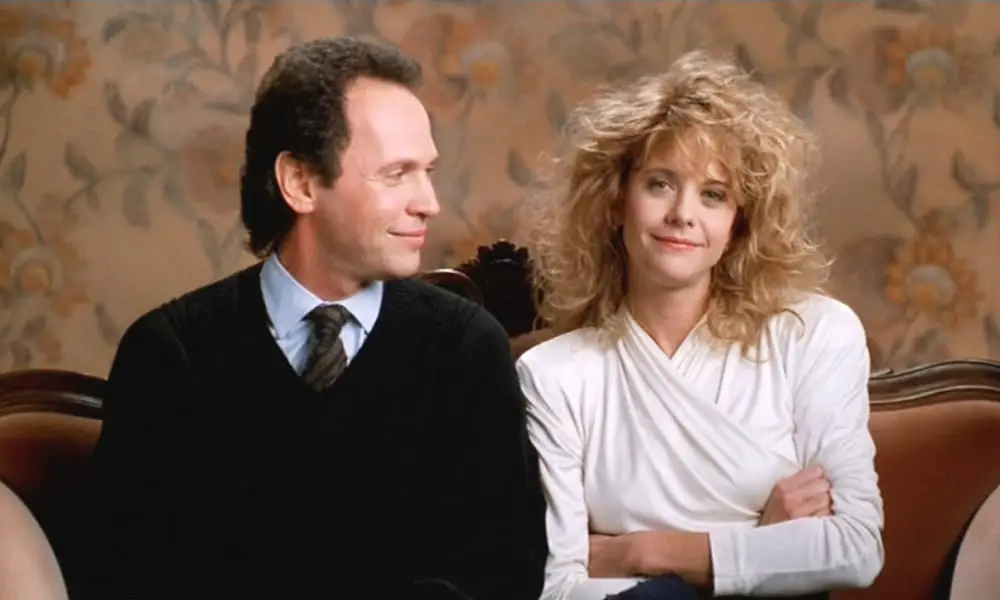
When Harry Met Sally…(1989) – Rob Reiner
In an era of Judd Apatow romcoms where all the men are terrified of adulthood, and all the women are nagging killjoys When Harry Met Sally…seems almost groundbreaking. It’s a romantic comedy involving actual adults. It’s frank and honest but also fair. The fairness stems from the intriguing and unique way Nora Ephron wrote the script. After listening to Reiner and his producer, Andy Scheinman talk about being men she got an idea. Ephron began to interview the two to get the ‘male perspective.’
Thus the conversations between Harry (Billy Crystal) and Sally (Meg Ryan) hum with authenticity. Take the moment where Harry boorishly pontificates about “How men and women can’t be friends.” He’s wrong of course but how often have you heard men say this? Sally’s fake orgasm scene in the diner is still hilarious because she says something women have long known, and men have historically disbelieved. The conversations behave and move like real conversations without furthering any real plot. Characters talk about their beliefs and relationships as they go about their daily lives.
Reiner directs the movie in a grounded way. His style is there, but it’s subtle. Notice how he keeps the wagon wheel coffee table in frame while Harry, Sally, Jess (Bruno Kirby), and Marie (Carrie Fisher) argue about it. The way he films Harry and Sally in a long shot as they walk through Central Park discussing their dreams and nightmares. But the stroke of genius comes from Ephron herself. Ephron interviewed crew members about how they met their current partner. Renier then took those interviews, cast actors and in a documentary fashion interspersed these ‘interviews’ throughout the movie. In a roundabout way, this allows Ephron and Reiner to get at a sort of ecstatic truth about what love and relationships are.
Devoid of wacky events and contrived meet cutes the stories ring true because they are. In reality, most relationships are not one size fits all. Yes, love makes the world go around. But true love is getting up at six in the morning to make your partner a pot of coffee. When Harry Met Sally… understands this and Reiner and Ephron celebrate it.

